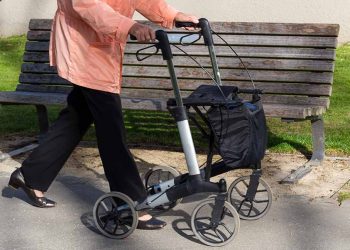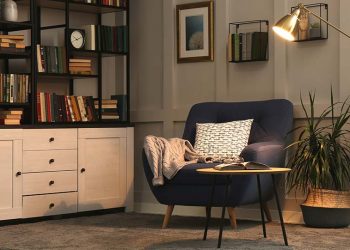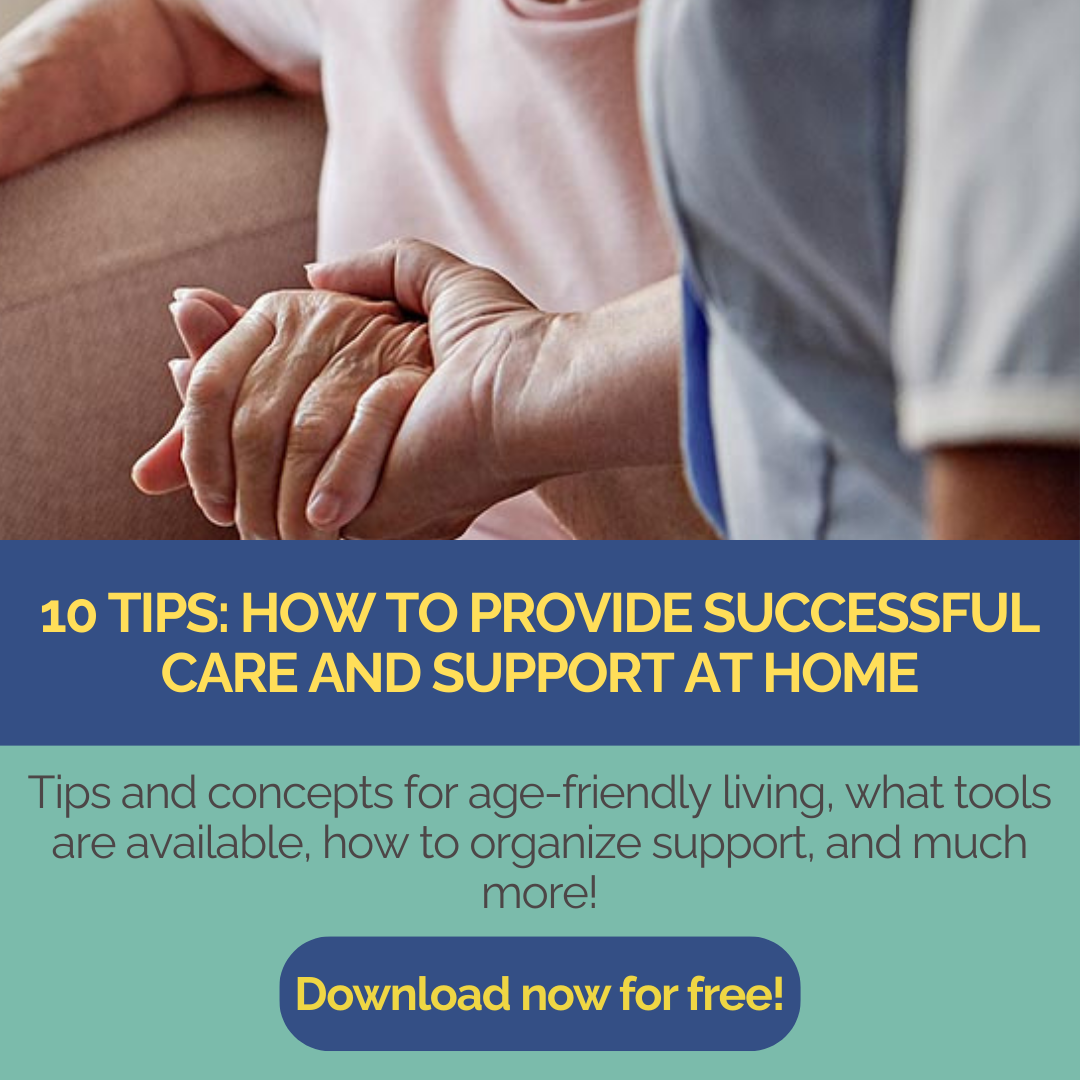Dementia is more than just a diagnosis – it affects language, roles, spaces and attitudes. The PROMENZ initiative & competence platform shows how self-help, respectful interaction and low-threshold services break down barriers and enable participation. We talk to Managing Director Raphael Schönborn about why the deficit view falls short, how the self-developed understanding model works in practice and why early clarification and open discussions help those affected and their relatives noticeably.
SBC: PROMENZ emerged from self-help – a consciously active approach. What does “working from the perspective of those affected” mean for you in concrete terms, and how is this reflected in your services?
Schönborn: We want those affected to be able to be active for themselves. It is an important aspect of health promotion that we anchor, strengthen and promote this self-help.
People with dementia find it difficult to organize themselves and, due to the taboo and stigma, they also appear far too little in public and are far too little visible and heard. It is therefore necessary to provide support and organize spaces. Above all, we need to be able to talk openly. Only a few can do this – but these few can then speak for the many and help them to break down this stigma, this taboo.
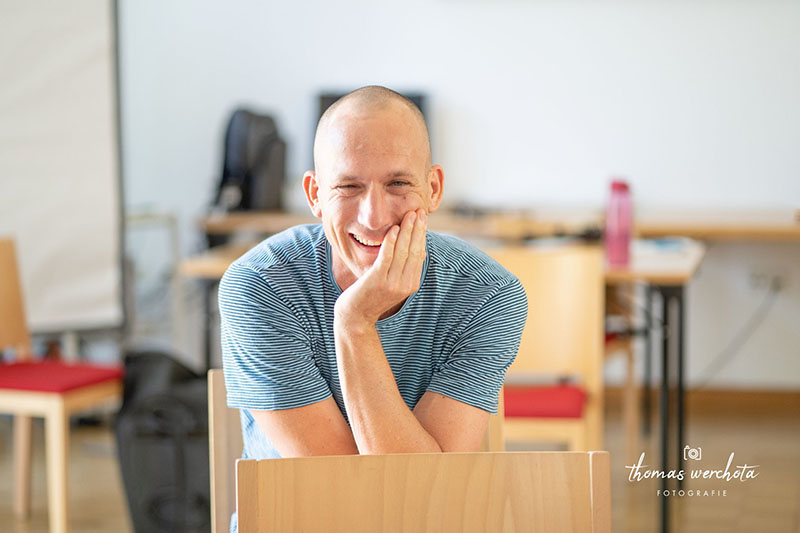
SBC: The ‘understanding model’ that your association has developed is currently celebrating its first birthday. How does this model work?
Schönborn: There are a number of models on the subject of dementia, mainly from the field of medicine, which take a very deficit-oriented view. Dementia is a decline, a gradual loss of abilities, characteristics and skills. And the horror is always perpetuated. We are not interested in negating this. Of course that’s true – dementia is terrible. But we realize that this doesn’t get us anywhere when it comes to reaching those affected. Or this one-sided negative image is communicated, which results in few coping strategies but social and structural barriers.
We have therefore developed a model with those affected by using qualitative research, interviews and a review of many protocols: What are the impairments of people with dementia? In other words, how do they themselves describe their impairments? How do they perceive them? Which levels can be identified – mental impairments, memory orientation and, of course, language. On a physical level, they often express dizziness or a loss of independence.
And then there is the emotional area, which is particularly pronounced. You simply notice that dementia leads to massive insecurity and irritation, that you feel inferior. And then there is also the social area. These levels are interconnected. Those affected notice that they are treated differently as soon as it becomes known that they have dementia. As a result, they are no longer considered to be of full value. People talk about people with dementia as if they were in a different world. And that is highly problematic, because making them different leads to them being treated differently. It also explains why so many people with dementia are unable to talk about it.
Dementia is the epitome of otherness, of no longer being normal, of no longer belonging. It is also the loss of dignity, status and recognition. For those affected, the diagnosis is like social death.
SBC: How do you methodically incorporate the internal perspective of those affected into your model – and how does this lead to the concrete reduction of barriers in everyday life?
Schönborn: The model expands the understanding from a purely deficit-oriented model to a social and structural model. It is based on a human rights model in which people are not only impaired, they are also disabled or impaired. And ultimately, it is about identifying these barriers and understanding them from an internal perspective. Only then can we break down these barriers.
And then it becomes clear that those affected have the same needs as us healthy people. When we ask: What do you want, what do you need? Then they clearly state that they want to be seen and treated as fully-fledged. That they are still trusted with independence and autonomy, self-determination and participation. That they are spoken to honestly and sincerely. These are all aspects that every other person probably wishes for too.
And based on these findings, we have formulated recommendations for action for different professional groups and for different target groups.
SBC: What recommendations for action would that be, for example?
Schönborn: Try to open up. Try to make use of support. Talk openly about it. Attend self-help groups, also for relatives. That you shouldn’t always just see the deficits, but other resources and strengths. That the person affected can’t help it and that constant correcting and rectifying also leads to their self-esteem always being massively damaged. And of course we also have recommendations for action for decision-makers and educational institutions.
We have translated our model into a brochure that is simple and easy to understand. It is available on our homepage downloadable.
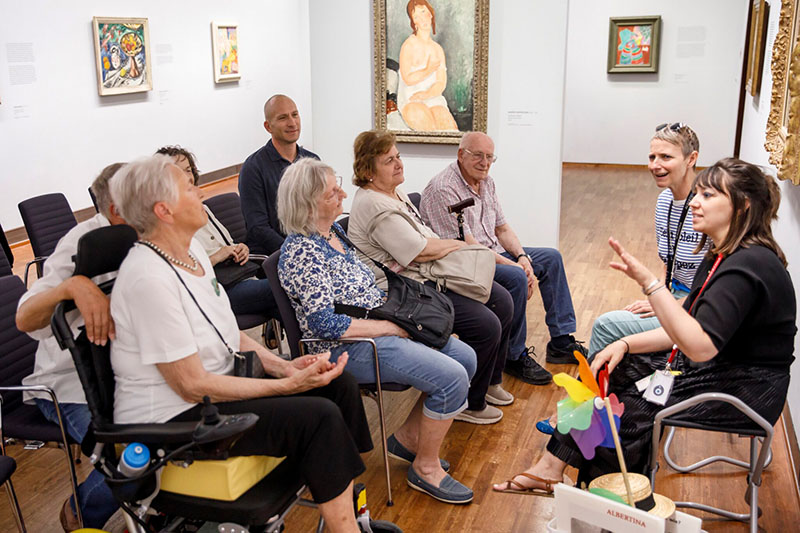
SBC: Is this negative approach to illnesses such as dementia also one of the reasons why we like to avoid diagnoses?
Schönborn: Basically, getting a diagnosis is incredibly difficult and it also means overcoming it. Another psychodynamic reason for dementia is the rejection due to this horror. When you imagine how terrible and horrible dementia is, that you lose your mind and can’t do anything about it. And if you communicate the illness openly, you are also put at a disadvantage. So why should you put up with it?
It also provides an explanation as to why so many of those affected are unable to talk about it. The question is always: can they not talk about it, do they not want to talk about it or do they have no insight at all? There is a widespread opinion that people with dementia don’t recognize it. And I think that’s nonsense, especially in the early stages.
Most of those affected do not manage to integrate this into themselves, into their personality. This leads to defense, to negation. The others are to blame, the others have stolen or misplaced something. You protect yourself from this attribution. However, this understanding is essential for dealing with it. Only if we understand and comprehend dementia from the perspective of those affected can we deal with them appropriately and prevent many conflicts.
SBC: So what initial steps would you advise those affected and family caregivers to take?
Schönborn: The most important tip for family caregivers or those affected: Get a diagnosis and help quickly if you notice something has changed. Early diagnosis is crucial, as there is not just one form of dementia, but different types. Some causes are treatable if they are recognized in time.
Even if medication does not work miracles and cannot stop or reverse the course of the disease, it can have a positive effect. But only if it is clear which form is involved. There are new active substances for early forms of Alzheimer’s, but they are only approved for narrowly defined groups of people and require comprehensive preliminary clarification and close monitoring. Studies report delayed progress of up to a third, which can be very relevant for those affected. This gives hope, as these treatment options may be able to start earlier in the future, preventing the damage to the brain from occurring in the first place.
It is therefore very important that a diagnosis is obtained. Repression does not help – it usually makes the problems worse for those affected and their relatives. Open discussions and early support are therefore the better way forward.
Low-threshold contact points such as self-help groups or advice centers offer orientation and prompt help without the need for an immediate appointment with a doctor or neurologist. If someone wants support from Promenz, they can join a group straight away or we can arrange an appointment promptly. We know where support and help is available and we also know how to communicate so that support is sought as soon as possible.
We can’t take away the fear or sugarcoat the situation – dementia is a terrible thing. But you can reduce the fear through support and guidance and deal with the situation better.
“I believe we need to make dementia more and more a manageable and controllable impairment. Then we can take the fear out of it.”
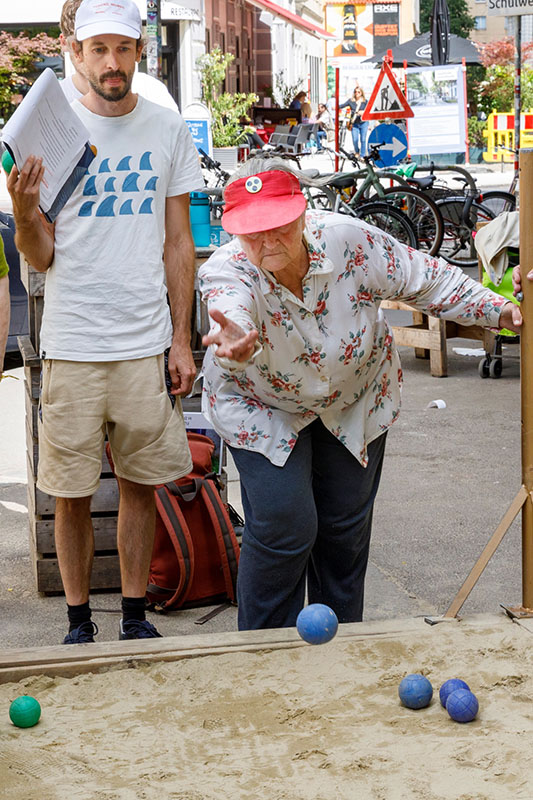
SBC: What would you like society to do about dementia?
Schönborn: Historically, older people are doing better than ever before – in terms of life expectancy, healthcare and care. However, we are currently noticing a deterioration again, particularly in terms of care and nursing. The expected cuts in Austria will accelerate this process even further. As a result, prevention is becoming increasingly important.
But a different message is needed. The prevailing narrative is that nothing can be done about dementia. And that is simply not true. According to a study published by the Lancet Commission, dementia can be prevented. It is about controlling 14 risk factors such as smoking, exercise, vascular health, but also mental health, depression and loneliness. And of course genetics play a role, as do education, being active, getting enough sleep, There are many aspects in which you can actively do something to prevent it yourself.
The media analyses of dementia are fatal. In a nutshell, they describe dementia as destroying those affected and their relatives, as well as our social and economic system due to the costs. Dementia has become a dirty word in our society. It is also not helpful when one politician tells another in a speech that he is the youngest dementia patient. If you put it all together, one message remains: You are no longer sane.
I believe that we need to make dementia more and more a manageable and controllable impairment. Then we can take the fear out of it. This is about information, but also about services: If you only inform people that we can prevent it – and then there are no offers, then the message is not right. In order to be able to do something, we also need the right services. And there are hardly any, or they are simply not sustainably funded.
Of course, there are also positive examples, such as in Vorarlberg. Here there is the dementia campaign, and its awareness and sensitization work is bearing fruit. There are dementia cafés, for example, which give people the opportunity to get to grips with the topic. It is precisely these activities that are needed in the local area to draw attention to the topic, communicate and also offer services. There is no point in simply providing information and then there are no regional, low-threshold services. It has to be interlinked.
As far as care is concerned, we really have to be careful that we don’t get caught up in a very negative development.
SBC: What would you like to see from politicians?
Schönborn: I believe that what those affected and their relatives need is not rocket science. You just have to listen to them, which we have done often enough. There is plenty of evidence of successful, promising initiatives, projects, services and offers. None of this is a secret.
Unfortunately, what happens time and time again is that even well-evaluated, evidence-based services are either only funded for the duration of a project or existing initiatives are discontinued. And that is simply irresponsible and short-sighted. All in all, we should of course be investing in health promotion and prevention much earlier. Currently, the financial structure of self-help in Austria is very poor. We would like to expand self-help groups throughout Austria, but it always fails because of the costs and sustainability.
Furthermore, our health and social system is very fragmented. Here and there there is something good, somewhere else the service is less good, there the costs are higher, in another federal state they are lower again. We cannot really afford this fragmentation of the system and it is also highly dubious.
Thank you very much for the interview!
About the PROMENZ association
The initiative was founded ten years ago on the initiative of former chairwoman Reingard Lange as the first self-help group for people with incipient dementia.
The name – Promenz – was defined by those affected themselves: Pro menz – meaning for the mind. The initiative works consistently from the perspective of those affected, but now also offers support for relatives.
- For Austria & the entire German-speaking area: Free initial consultation, further consultations via video call or telephone (costs: EUR 40 per hour)
- Group meetings in the 3rd & 13th district/Vienna, as well as in Klosterneuburg, dates can be found on the homepage
- Support for relatives:
- Online consultation hour for relatives for joint exchange and thematic input: every second Monday 18-19.30, participation via Zoome (link on promenz.at/offers – Upcoming dates on promenz.at
- Raphael Schönborn is also available for lectures and workshops.
More information at promenz.at.
Author: Anja Herberth
Chefredakteurin



